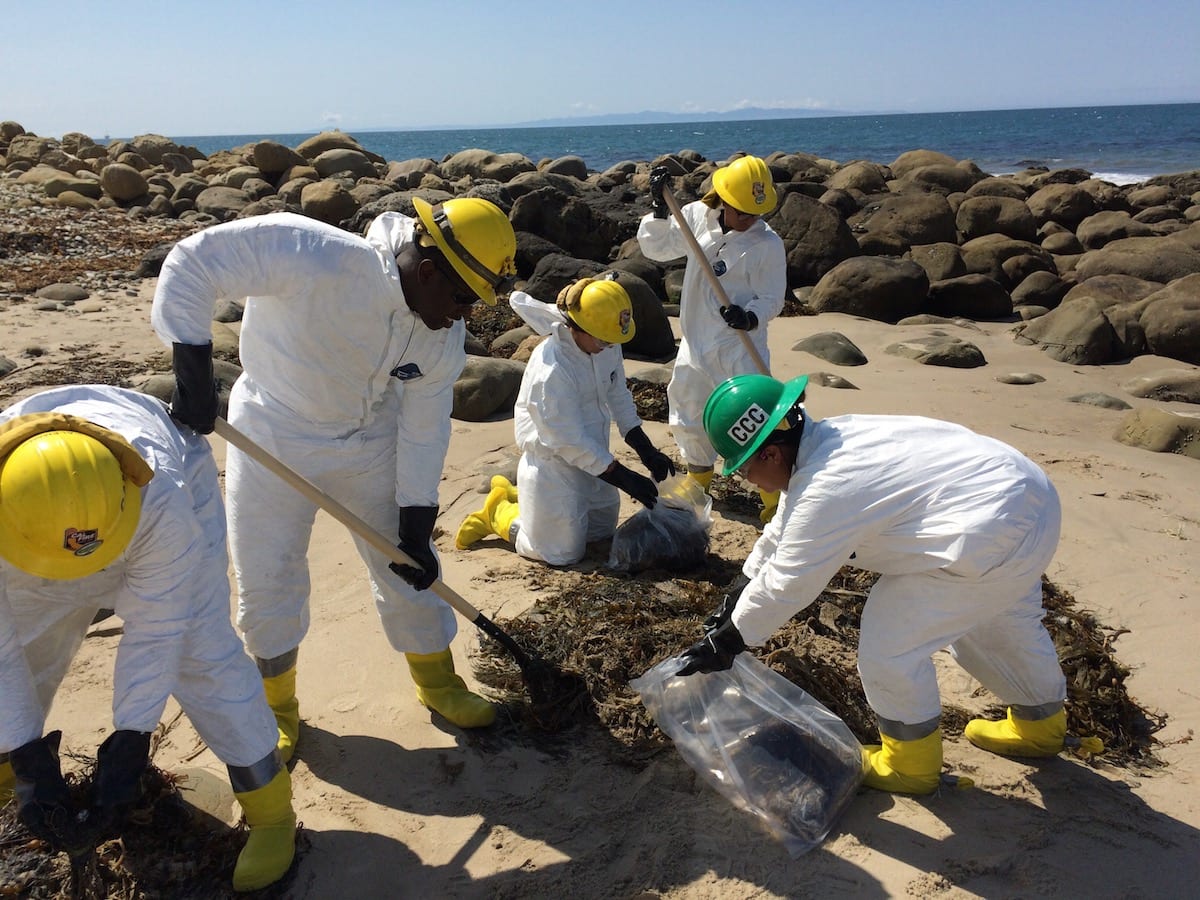 by Rory Carroll
by Rory Carroll
[contextly_sidebar id=”QWF15ijZkaKlgIo1hM08QgRAYs7Ffy18″]May 22, San Francisco (Reuters) Hundreds of barrels of oil that gushed from a ruptured coastal pipeline in scenic California this week could stiffen opposition to large oil projects that companies want to build in the state, notably those to deliver cheap U.S. crude on trains.
Several proposed oil-by-rail offloading terminals in California were already being contested in light of several fiery crude train derailments since 2013 that have stoked safety concerns about spills and explosions.
Now, the sight of oil washing up on the shores of Santa Barbara could further galvanize rail opponents after up to 2,500 barrels of crude leaked on Tuesday from a pipeline owned by Plains All American Pipeline LP (PAA.N).
“The more oil we’re moving through the state, the greater the risk of these sorts of accidents,” said Paul Cort, an attorney with EarthJustice, which has sued to stop crude deliveries at Plains’ 70,000 barrels per day (bpd) oil-by-rail terminal in Bakersfield.
Past oil spills have prompted policy changes. A leak of 100,000 barrels of crude off Santa Barbara in 1969 led to bans on new leases for offshore drilling in California.
The latest spill could complicate regulatory approvals.
“It’s certainly not good news for anyone trying to permit any kind of oil-related facilities in California,” said John Auers, a consultant at Turner, Mason & Co in Dallas.
Refiners Valero Energy Corp (VLO.N) and Phillips 66 (PSX.N) want to use railways to transport cheap crude from onshore fields in North America to northern California refineries to displace more pricey foreign imports.
But the projects, which could help mitigate upward pressure on gasoline prices that are among the highest in the United States, have been repeatedly delayed to allow for lengthy environmental reviews.
Some companies have given up.
Nearly two months ago, WesPac Energy-Pittsburg LLC withdrew the 51,000 bpd oil-by-rail component in a broader proposal that has been awaiting permits from the city for more than two years. WesPac now proposes that crude would move into the terminal only via pipeline or vessel if approved. Valero last year scrapped crude-by-rail plans at its Los Angeles-area refinery.
And even some companies with permits face more hurdles.
EarthJustice is suing local permitting agencies over both the Plains’ Bakersfield operation, which the company aims to expand to 140,000 bpd, and a new Alon USA Energy (ALJ.N) rail project nearby slated for next year.
“People trying to build projects that bring North American crude oil to displace imports at California refineries now have another thing they have to deal with,” said David Hackett, a consultant with Stillwater Associates in Irvine, California.
Additional reporting by Rory Carroll in San Francisco; Editing by Terry Wade and Grant McCool
© 2015 Thomson Reuters. All rights reserved.

 Join The Club
Join The Club











